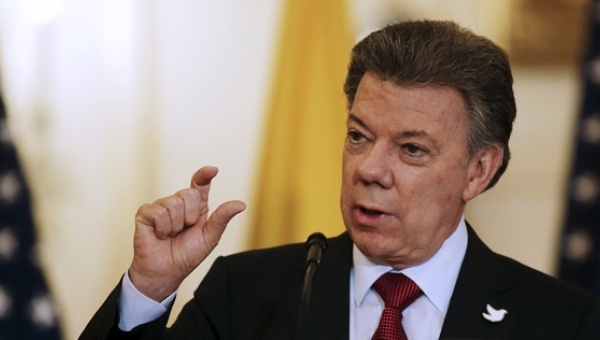In the first election since the peace accords between the Colombian government and the FARC, the candidates for the Colombian presidency will be a right-wing opponent to the peace deal and a leftist former mayor of Bogota.
It was the first elections that the FARC were allowed to take part in. The election will take place in late May with the runoff in mid-June.
Polls closed on Sunday in Colombia’s highly contested parliamentary election, the first of its kind since President Juan Manuel Santos finalized a peace deal with the Revolutionary Armed Forces of Colombia (FARC).
“We can say, with a lot of pride, that these elections are the most peaceful, the most transparent … in the recent history of the country,” said Santos after casting his vote.
Santos, who was awarded the Nobel Peace Prize in 2016 for ending a decades-long civil war, urged Colombian citizens to strengthen the country’s democracy and “get out and vote.” Santos, who signed the peace agreement with the FARC in November 2016, is stepping down as president in August after two terms.
Ivan Duque of the Democratic Center party won the right-wing primary on Sunday taking more than 3.9 million votes, with 96 percent of ballots counted. He will lead the hardline opposition to the peace deal which allowed the FARC rebels to take part in the elections, with a guarantee of five seats in the Senate and five in the lower house.
A close ally of former President Alvaro Uribe, Duque is a lawyer who wants to see the deal with the rebels renegotiated.
Former-mayor of the capital Bogota, the leftist Gustavo Petro will oppose Duque in the May presidential vote. He won 2.8 million votes in his primary on Sunday. He is in favor of the peace deal and is proposing a “social economy” for Colombia with increased taxes for the rich.
“Our results were very positive” Petro told his followers after hearing of the first results. “The presidential campaign starts today.”
The first round of the presidential election is set for May 27, with the runoff planned for June 17.
The FARC has changed their name to the Common Alternative Revolutionary Force, and thus far, engaging in the political process for them has been tough. Many FARC candidates were mobbed by angry crowds during the campaigning. Due to the kidnapping, drug trafficking and atrocities carried out by the FARC, Colombian citizens aren’t in a forgiving mood.
Early results have FARC candidates receiving 0.5 percent of the overall voting so their prospects at garnering more than their allocated 10 seats are slim.
To read the entire article from Deutsche Welle, click here:
Photo courtesy Wikipedia
